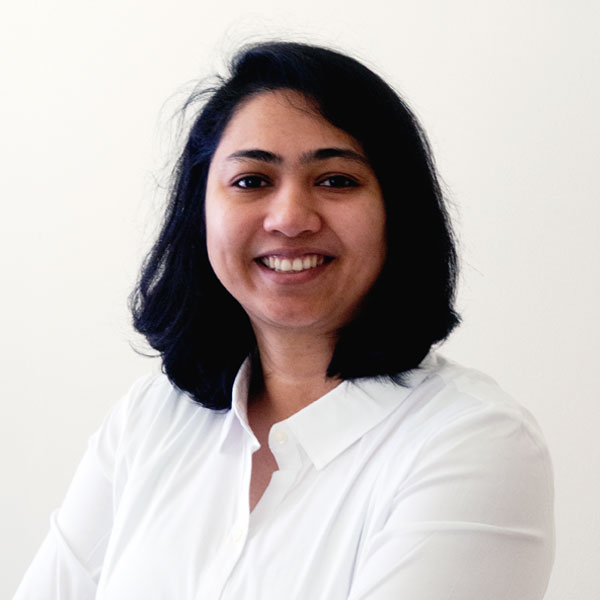Advancement in batteryless or energy-constrained systems is necessary to realize that continuous and pervasive sensing as replacing batteries is cumbersome and unscalable. To illustrate, even with a battery life of 10 years, 274 million batteries would need to be replaced daily when the number of IoT (internet of things) devices reaches one trillion by 2035. While existing works on intermittent computing systems concentrate preliminary on the lower-level goals, e.g., execution progress and memory consistency, such systems’ potential under timing constraints is yet to be explored.

Without time sensitivity and an efficient processing layer, these systems fail to capture and process data within the deadline and generate irrelevant and ineffective results. It limits the opportunities to use batteryless systems in a wide range of necessary application domains, from infrastructure monitoring to wildlife tracking and long-term health monitoring.
Bashima’s research focuses on understanding and enhancing the usability and processing capabilities of batteryless sensing and computing devices by introducing timeliness and learning capabilities. She leverages the data processing and control layer of batteryless systems to ensure timely response by developing novel frameworks that (1) integrates energy harvesting and real-time systems and (2) rethinks machine learning algorithms to enable imprecise computing. Developing these novel frameworks is necessary to understand and redesign the sophisticated machine learning and signal processing algorithms and utilize embedded systems’ multimodal sensing opportunities. She also employs similar strategies to explore the potential of sensing using resource-constrained systems in diverse application domains, including computer vision, mobile health, and pedestrian safety.
Bashima Islam is a Ph.D. Candidate in the Department of Computer Science at the University of North Carolina at Chapel Hill. Her research’s interdisciplinary nature involves a blend of diverse domains, including Embedded Computing, Internet of Things (IoT), and Cyber-Physical Systems, with an emphasis on Machine Learning, Signal Processing, and Ubiquitous Computing. She is especially interested in Intermittent Computing and aims to introduce a new set of sustainable edge computers that are time-aware, inference capable, self-evolving, programmable, personalized, and user-friendly. Her work has been published in top conferences, including IMWUT/UBICOMP, IPSN, RTAS, and MobiSys. As a recognition of her work on time-aware intermittent systems, she received an honorable mention for the Gaetano Borriello Outstanding Student Award at UbiComp 2020. She was selected for the Rising Stars in EECS 2020. She is also a recipient of the N2Women Young Researcher Fellowship Award 2017.
Contact Ginny Watterson for Zoom link.